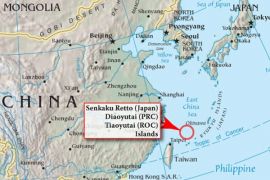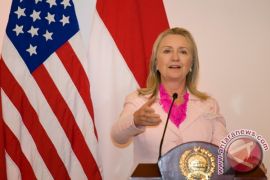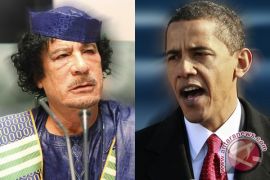Deputy Foreign Minister Gennady Gatilov`s comments echoed others that appear intended to blame Western and Arab countries for the failure to end the conflict through diplomacy such as outgoing mediator Kofi Annan`s peace plan.
The West has accused Moscow of allowing Syrian President Bashar al-Assad to act with impunity by repeatedly vetoing U.N. resolutions meant to pressure the Syrian government, which bought nearly $1 billion in arms from Russia last year.
"There is growing evidence, including in the media, that Syrian opposition is massively supplied with Western-made weapons through third countries," Gatilov wrote on his Twitter microblog. He did not provide details.
The United States and Britain say they are providing non-lethal assistance to rebel such as communications equipment but not arms. Saudi Arabia and Qatar, two strong Arab opponents of Assad, are believed to be funding a flow of weapons to rebels.
In announcing his resignation as peace envoy effective at the end of the month, Annan said "finger-pointing and name-calling" had induced the impasse over the conflict, which is sliding deeper into civil war after 17 months of violence.
Russia has strongly opposed any foreign intervention in Syria and continues to support a now moribund-looking six-point peace plan laid out by Annan. Moscow has repeatedly called on the West and Arabs to press rebels to stop fighting.
Gatilov`s comments came days after a U.N. report that assessed that both security forces loyal to Assad and the rebels, which broadly have the moral support of the West and most Gulf Arab states, had committed war crimes.
Last week Foreign Minister Sergei Lavrov accused the West of reneging on an agreement to help set up a transitional government in Syria and of prolonging the bloodshed by encouraging the insurgents to fight on.
U.N. military observers left Damascus on Monday after a four-month mission in which they became helpless spectators of the spiralling conflict, instead of monitoring a ceasefire between Assad`s forces and rebels.
U.S. Secretary of State Hillary Clinton said earlier this month that the United States and Turkey were looking at all measures to help Syrian rebel forces, including a no-fly zone there as the conflict deepens.
Lavrov said in an interview with Sky News Arabia published on Saturday that any attempt to use humanitarian concerns as a pretext to establish no-fly zones or security zones on the ground in Syria "for military purposes" was unacceptable.
A few days after Clinton spoke, U.S. Defense Secretary Leon Panetta said a no-fly zone was not a "front-burner" issue and Turkish newspapers quoted the U.S. ambassador to Ankara as saying there were serious legal and practical obstacles to such an idea. (B002)
Editor: Kunto Wibisono
Copyright © ANTARA 2012







